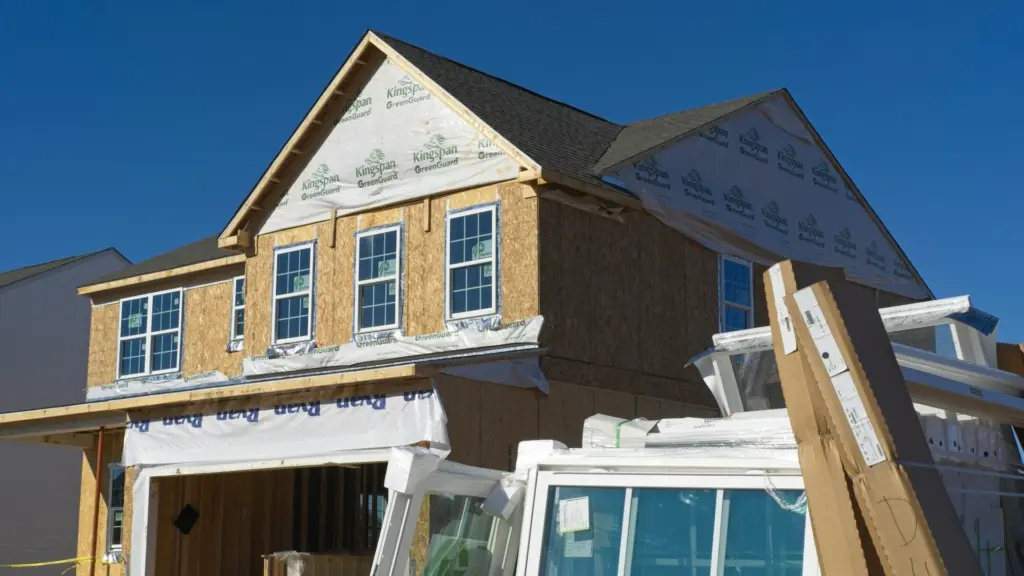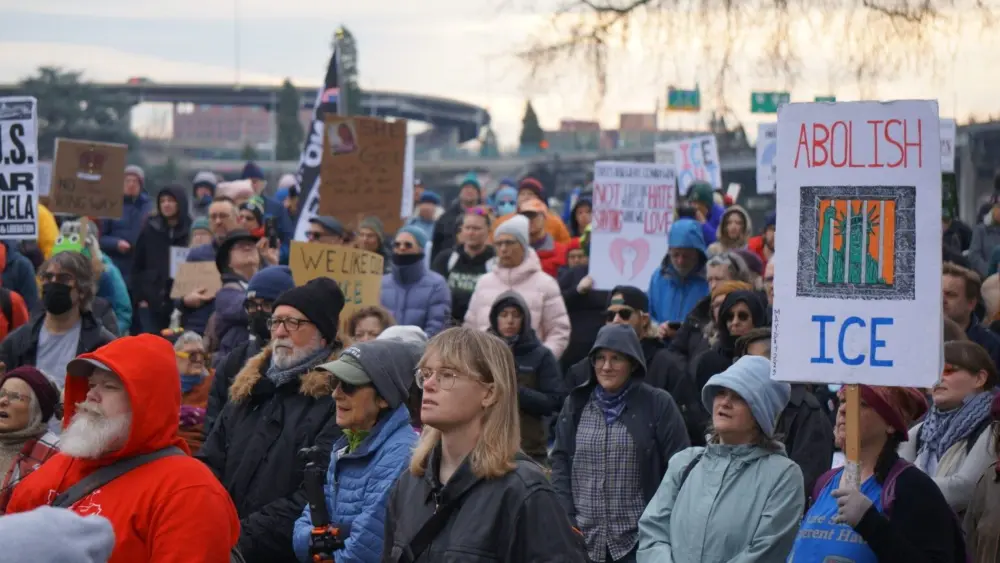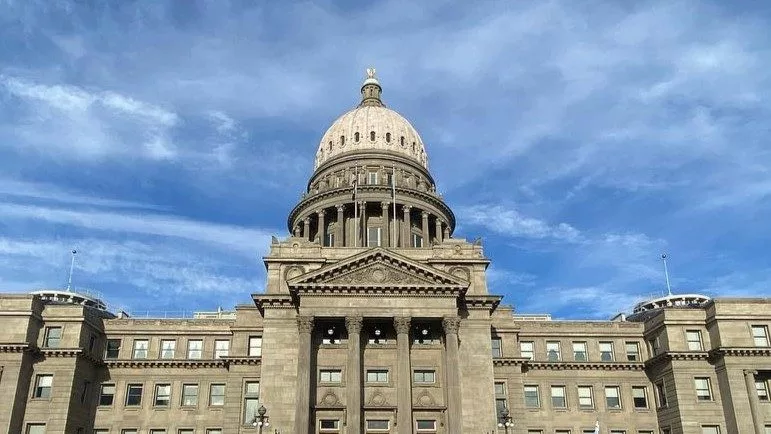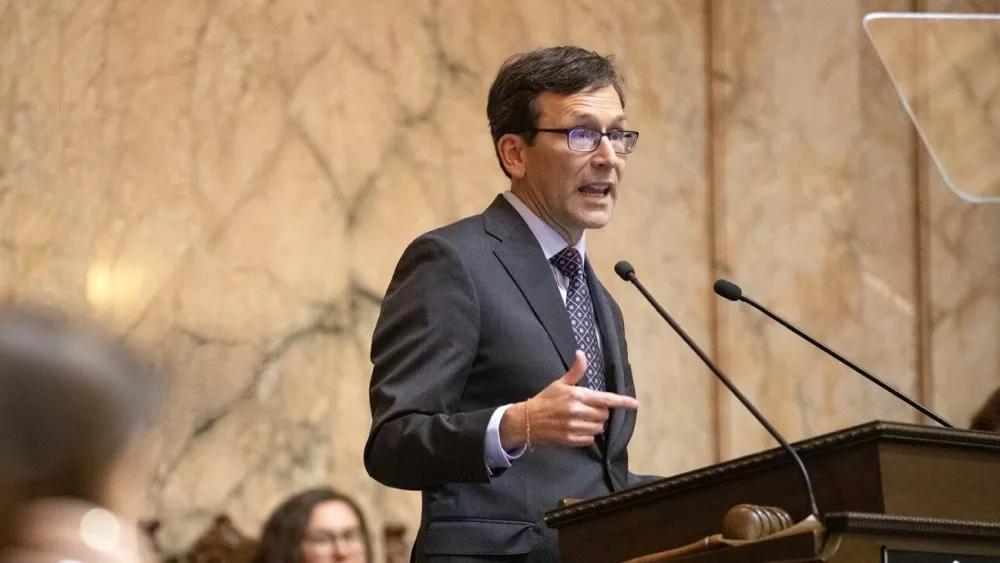BOISE, ID – As a group of stakeholders and Idaho lawmakers prepare to address the state’s housing issues, a number of priorities have risen to the top: water and sewer infrastructure, incentives for affordable housing, zoning, and the impact on local government of House Bill 389.
The Idaho Land Use and Housing Study Committee on Friday discussed its priorities for a final report on recommendations to improve housing affordability and availability in the state. The report is expected within the next month or two, and the committee will likely not meet again, according to one of the co-chairs.
The committee, which is co-chaired by Sen. Jim Woodward, R-Sagle, and Rep. Jordan Redman, R-Coeur d’Alene, met five times since May to discuss subjects such as high land costs, permitting delays, zoning, building regulations and solutions from other states as it prepares to recommend legislation to address the issue in the 2026 legislative session, which begins in January.
The group — created through legislation sponsored by Boise Democrat Sen. Ali Rabe — comprises lawmakers, building officials, local government representatives, and developers.
Committee members underscore high cost of infrastructure to support housing growth
Discussion for the group’s top priorities repeatedly emphasized the need for funding for water and sewer infrastructure, so communities can absorb the high growth, especially in smaller communities.
“Sewer, water infrastructure is massive,” said Trevor Chadwick, of the Association of Idaho Cities and the mayor of Star. “We’ve got several communities just in this valley that are struggling right now.”
Many Idaho cities must ask voters to approve bonds to pay for water or sewer upgrades, which can be difficult to pass. Valley County Commissioner Sherry Maupin, of the Idaho Association of Counties, said the requirement to achieve a supermajority of 66.67% of the vote to pass bonds for construction can create hardship when those fail to pass but the need for the service remains.
Rabe emphasized a need for “gentle density,” to avoid urban sprawl, which she said would cause even more expensive infrastructure investments to expand and maintain. She said less-restrictive zoning that may allow for smaller starter homes on smaller lots and infill in existing lots rather than expanding outside developed city areas.
Sen. Ben Toews, R-Coeur d’Alene, also said it was his understanding that infilling in undeveloped or underdeveloped areas within cities that are already attached to water and sewer lines, is less expensive on infrastructure than expanding those services to suburban areas through sprawl. He, Redman, and others on the committee expressed support for expanding the rights of property owners to build accessory dwelling units, or ADUs, which are smaller, independent housing units on the same property as an existing home.
Chadwick, of the Association for Idaho Cities, said he would caution against giving every property owner the right to create an ADU, as it could add strain on utility systems if too many additional users are added.
“It’s the amount of sewage and stuff that goes into the system, regardless of where it comes from, it only can handle so much,” Chadwick said. “And so your systems, if you can’t expand those systems, we’re always going to be behind, and we will never be able to service and add the additional housing that we need.”
City of Boise Building Official Jason Blais said the city’s public works department has not had issues with tying in smaller dwelling units to existing infrastructure. He highlighted that after Boise updated its zoning code in 2023 to allow for more ADUs, the city has seen permits for them go from 30 to 35 a year up to around 80 per year.
Many say tax incentives and ‘gap funding’ are needed to complete truly affordable housing
Some members of the committee, such as Toews, argued that they mostly support free-market solutions to the housing issues.
Others said that current high costs for land and construction made it impossible for developers to build housing that low and middle-income households could afford.
“Developers, they build what the market can support, and then they build what’s feasible,” said Caleb Roope, CEO and president of the Eagle-based housing development company Pacific Companies. “… absent incentives, absent support from localities, those kinds of homes just won’t get built.”
He and other committee members highlighted the state’s Workforce Housing Fund, which was created in 1992 but not funded until 2022, when the Idaho Legislature added $50 million. Rabe said it helped finance 1,200 units across the state.
She and others expressed support for the state to make another investment in the fund.
Woodward, who also highlighted previous state investments in rural water and sewer infrastructure projects, said the state faced a “different budget picture” this year. In wake of back-to-back years of tax cuts, and increasing use of sales tax revenue, an October state budget report showed Idaho facing a projected $56.6 million deficit by the end of the fiscal year, the Idaho Capital Sun reported.
Committee members highlighted other ways to make affordable developments more financially feasible, such as property tax incentives or moral obligation bonds, which are tax-exempt government bonds with a moral but not legal obligation to pay back.
Maupin, of the Idaho Association of Counties, said existing tax breaks for affordable housing came with too many restrictions to make them usable for many projects.
Jason Kreizenbeck, a lobbyist representing a large workforce housing developer, said the firm plans to bring another version of House Bill 406 — a bill that it proposed during the 2025 session that would amend the property tax exemption for low-income units. The bill did not receive a public hearing.
Cities and counties still feeling damage from 2021 property tax bill House Bill 389
Multiple representatives of city and county government said budgets continued to be hampered by 2021 legislation House Bill 389 — which capped the growth of local governments’ budgets and reduced how much they could collect from taxes related to new construction. The bill was meant to ease the property tax burden on residents.
Chadwick said as a result of the bill, the Star region’s budget has been limited to a point where it can’t keep up with growth, leading to issues such as an empty fire station that’s been left unstaffed since local fire districts failed to pass levies to pay for the additional fire and emergency personnel needed to keep up with population growth, the Idaho Press reported previously.
Rabe said that continuing to work on the legislation should remain a priority.
“We do need to tackle the challenges that House Bill 389 has created for our cities, and not allowing growth to pay for itself,” Rabe said. “I think that has really been what I’ve heard as the root of the problem in all of this related to infrastructure. And I love the ideas that we have here, but I think because of House Bill 389, we are trying to plug holes in a sinking ship, essentially.”
Idaho Capital Sun is part of States Newsroom, a nonprofit news network supported by grants and a coalition of donors as a 501c(3) public charity. Idaho Capital Sun maintains editorial independence. Contact Editor Christina Lords for questions: info@idahocapitalsun.com.





